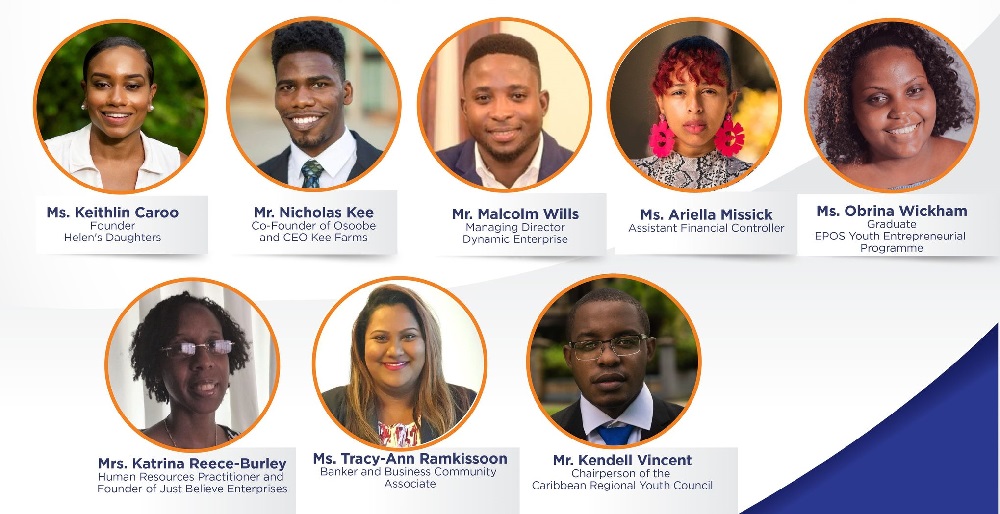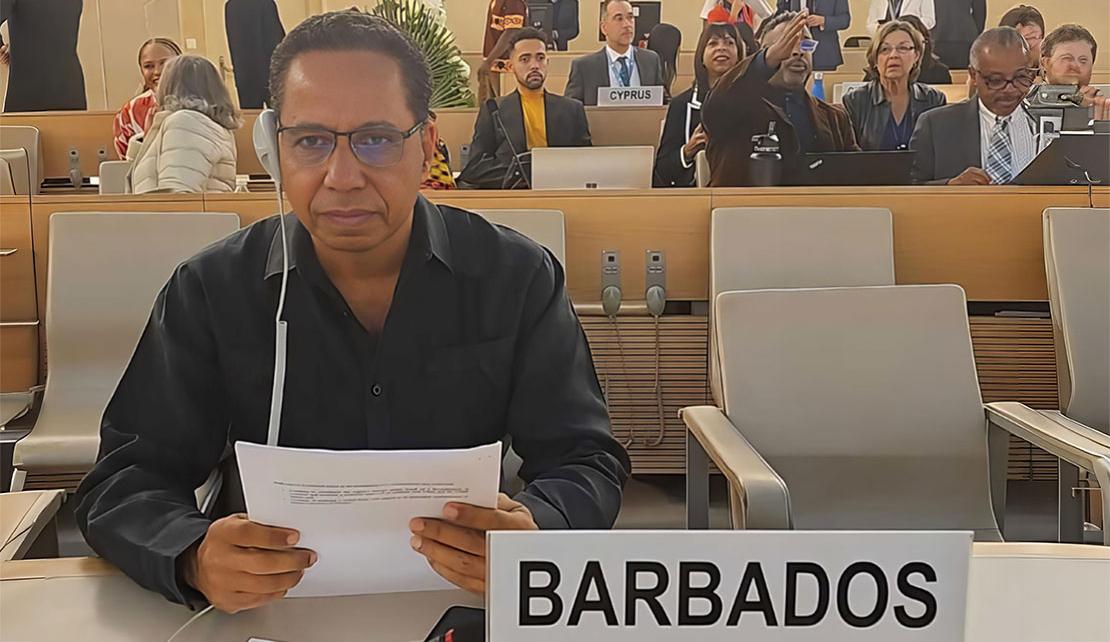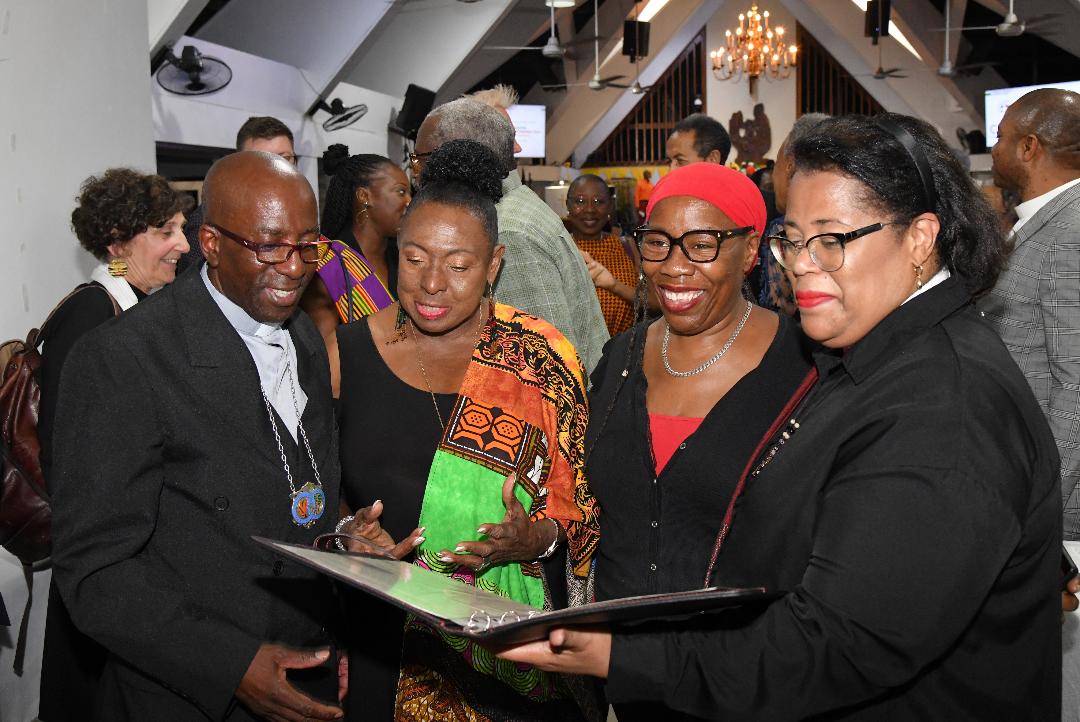By Dana Malcolm
Staff Writer
What makes Caribbean youth attractive to employers? What do they need to secure a job? Session two of the Caribbean Development Banks Youth FIRE session aimed to answer that question.
The session took on the issue of youth employability which affects nations globally and centred the voices of the people most affected by the phenomenon. Instead of taking the usual approach of mentoring successful high school students or college students, panellists assed the root problems of vulnerable communities that hindered employability and stopped many students from ever getting to the ‘high school graduate’ stage. Speakers explored ways to fix those issues to create equal footing early for the students who would make up the workforce in the next 15 years.
Tracey-Ann Ramkissoon, a banker, environmentalist, and social activist moderated the session. One of the main issues that most of the advocates faced was a lack of inclusivity and support in the education system for women, indigenous and immigrant children, and disabled people specifically. To make employable adults, they said, children must all be afforded level opportunities.
Human resources practitioner and the founder of ‘Just Believe Enterprises Katrina Reece Burley, who is disabled, lamented how the lack of inclusivity made it hard for disabled persons to get and maintain jobs. She insisted that the system must become more friendly to disabled persons.
“Change must occur at all levels of society where we recognize that everyone is different,” she said. Burley maintained that if all students were to succeed, inclusive education would be a must in the digital age.
Graduate of the EPOS Youth Entrepreneurial program, 17-year-old Obrina Wickham explained that participation in courses she found interesting had prepared her for the workplace and expressed her hope that other young people would be able to do the same.
“We need a society and economy that allows young people to explore their individuality and bring their new talents to the workplace.’ she said.
Kalinago Inclusion Advocate and Nanichi Foundation founder Amy Francis spearheads a foundation that supports young people in need in the Kalinago territory and allows them better access to learning supplies. Despite their contributions to society Kalinago children face stigma which impacts their access to resources, which in turn affects their employability.
“I believe if we give them the proper foundation, these children can move mountains.” Francis maintained.
Francis said scaling up programs that improved literacy in areas like finance and science and integrating indigenous knowledge in schools would help bridge the gap.
Assistant Financial Controller Ariella Misick explained the playing field was not always level for different students with different backgrounds and that as an immigrant to the Turks and Caicos she was well aware of this. She said immigrant children, especially those who needed to learn a new language, needed greater support. Directly to the TCI, she recommended that TVET Schools and community centres extend exit readiness programs to cater to students who need extra help.
“Inclusive societies are healthy societies and integration is important for self-actualization, for fostering innovation and contributing to a stronger economy,” she explained.
Panellist Keithlin Caroo who is the CEO of Helen’s Daughters, a grassroots organisation that focuses on representation for women in agriculture, was a UN Peacekeeper and Advisor on climate change issues for years. Caroo was uncomfortable with the underrepresentation of Caribbean countries especially in agriculture in the UN and how solutions for Agriculture seemed to come from the ‘top down’.
She worked to amplify the voices of women and Caribbean people on stages where their voices were lost. With that experience, she maintains that employability skills now are vastly different from 30 years ago.
“Before we wanted to secure an 8-5 job with a good pension and benefits, we’re in a world now where we need to create opportunities for ourselves.”
For this world, she said ‘employability’ is grit, persistence, the ability to pivot, a good understanding of underground trends, and taking advantage of niche markets. She encouraged the use of the internet to ‘upskill yourself’.
“You can get a degree but the internet is a world of things… instead of spending hours and hours on social media try to use that time to upskill yourselves in whatever niche market you have found.”
CEO of Dynamic Enterprises and ‘motor medical professional’ Malcolm Wills uses 3D printing to create prosthetics for amputees in Guyana. He stressed the skill of persistence, maintaining that nothing happens overnight. His market is truly a niche market that he has taken charge of, and he has four ways that entrepreneurs can really improve their skills:
market is truly a niche market that he has taken charge of, and he has four ways that entrepreneurs can really improve their skills:
-Commitment to research, research is 80-90% of the work.
-Getting in alignment with training programs that complement and expand your knowledge
-Growing your network and making strong meaningful connections
-Forging strategic partnerships
CEO of Kee Farms, Nicholas Kee, maintains that we live in a digital world and that is something that youth must use to their advantage by acquiring knowledge in niche areas of interest.
In terms of closing employability gaps, Caroo maintained that gaining experience during school was paramount instead of waiting until graduation.
“Sometimes you will not make money from that…it won’t be glory immediately, it starts with sacrifice,” she said.
A regional or national skills forum is what Wills recommends for success in the region when it comes to having a well-trained youth force and beating the employability gap
Additionally, Kee stressed that a bolstering of the telecom’s infrastructure needs to be undertaken immediately because without that we will remain behind.
“If we don’t address these things, we will essentially be locked out from different opportunities that the rest of the world presents, from the global north especially, and it also prevents us from creating our own opportunities.”
One takeaway Caroo mentioned that could really propel Caribbean youth through the business world was self-belief.
“There’s so much promise in the Caribbean region and there are so many problems, but we already have such innovative solutions, so it’s a matter of picking up the mantle, believing in yourself, and investing in yourself”
Kee mentioned curiosity and passion as his main takeaway encouraging young people to stay hungry and curious. Wills on the other hand said his main takeaway was prior preparation adding that just like with the Covid-19 pandemic you never know what the future holds.


 News1 day ago
News1 day ago
 Health1 week ago
Health1 week ago
 Caribbean News3 days ago
Caribbean News3 days ago
 Caribbean News6 days ago
Caribbean News6 days ago
 Health1 week ago
Health1 week ago
 Caribbean News6 days ago
Caribbean News6 days ago
 Bahamas News5 days ago
Bahamas News5 days ago
 Health2 days ago
Health2 days ago









